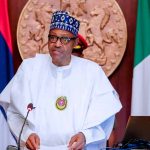A meeting between members of Niger State Assembly committee on Labour and Productivity and officials of Abuja Electricity Distribution Company, AEDC, ended in a deadlock as both sides failed to reach an agreement on hours of power supply to the state.
It would be recalled that relevant stakeholders resolved at a meeting, which held on 24th September, 2020; that ADEC should be given an ultimatum of 21 days to supply 24 hours light and pre-paid meters to the people or should be ready to face a mass protest by consumers.
They also vowed to shut down the three hydro dams Shiroro, Kainji and Jebba all stationed in the state, if the demands were not met.
The groups include the state Nigeria Labour Congress, NLC, Trade Union Congress, TUC, Youth groups, Religious leaders as well as Association of Commercial Motorcycle and Riders of Nigeria, ACCOMORON.
At a meeting, which held at the instance representatives of AEDC, Mr Saidu Gobe Abdullahi and Mr Oyebode fadikpe and members of the house on Labour and Productivity on how to reach an agreement on the issue, the chairman of the committee, Hon. Malik Madaki, representing Bosso Constituency, expressed concern on the constant epileptic power supply to the state.
Decrying the blackouts, he said “government, politicians and well meaning Nigerlites over the years have bought transformers, armored cable, poles, meters among others still the power supply is epileptic.
” Even if Nigerlites don’t pay, we are entitled to 24 hours power supply because we own the dams and the dams have been wrecking havoc by spillage, flooding farmlands and causing our people to move out of their homes.”
Asked on the reason for the unstable electricity supply in the state, Mr. Oyebode Fadikpe explained that the company supplies Niger state with 100 megawatts of energy and the amount for the energy supplied is expected to be collected and remit back to the company.
” So, that the likes of Shiroro, Jeba, kainji, Geregu, Egbin, and other power stations all over the country can also have money to buy gas which is a major component for the generation of electricity.
“The ones in Niger state for which we refer to as the power state are purely hydro but our power system is skilled in the favour of gas. Hydro is 15 per cent while gas is 85 per cent. It will not be in the favour of the power sector if you say a customer should not pay because it will seem like the money comes to the discos 100%. On the issue of metering customers themselves are the drivers of metering.
“When customers pay, they are expected to be metered. All customers cannot pay at the same time that is why there is a meter service charge which allows customers to pay on installments. And it is opened to every customer who wants to get a meter.
“We appeal to customers to take advantage of the opportunity. In relation to Tunga feeder, which has been metered up to 80% the remaining 20 per cent customers who live within the Tunga axis can also take advantage of the meter service charge so that at the end of the day we will have an entire feeder with meters.
According to him, “Tunga feeder gives us the opportunity to test run whatever amount of energy. The whole power in Nigeria can be diverted to that location provided customers are willing to pay, so that other members of the value chain will receive their portion of the financial commitment that is due to them. “
Mr Fadikpe, however, offered 8hrs of power supply against the 24 hours earlier resolved by the stakeholders but was turned down by members of the committee.
He also offered 12hrs which was equally rejected by the committee which insisted on 20hrs daily power supply.
Fadipke maintained, “my hands are tied because we are in restricted regulatory positions. The power sector is highly regulated; we are not allowed to unilaterally take certain decisions outside the confines of the regulatory instruments. If the 8hrs is declined, we move to 12hrs but there are conditions attached to it.”
Against this backdrop, the interface between the two groups ended without reaching an agreement.




